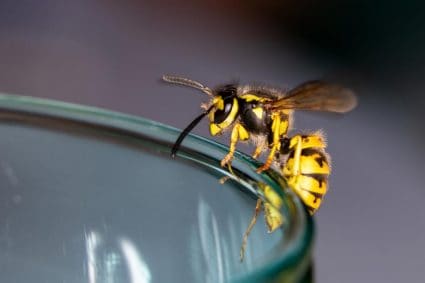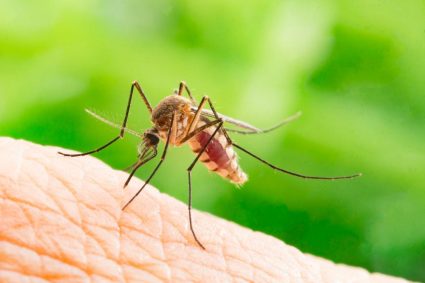
Skunks are notorious for their potent smell, which they use as a defense mechanism against predators. But just how far can this smell travel? The answer is not as straightforward as you might think, as several factors can influence the distance that skunk smell can reach. From wind conditions to the size and weight of the skunk, many variables contribute to the dispersion and strength of skunk odor.
The distance that skunk smell can travel depends on several factors like the size and weight of the skunk, wind conditions, and the concentration of the spray. Under optimal conditions, skunk scent can be detected by the human nose up to 3.5 miles (5.6 km) downwind. However, the smell is typically strongest within a 10 to 20 feet radius.
What Influences the Distance Skunk Smell Can Travel?
Size and Weight of the Skunk
Larger and heavier skunks can spray farther distances. In fact, skunks can accurately spray their target up to 10 feet, and the spray can reach distances of 16 to 20 feet under the right conditions.
Wind Conditions
Wind plays a significant role in how far skunk smell can travel. In windy conditions, the smell can be detected up to 1 mile (1.6 km) away.
Concentration of the Spray
A skunk can control the amount of spray emitted, which can affect how far the smell travels. The more concentrated the spray, the stronger the smell and the farther it can potentially travel.
How Far Can Skunk Scent Be Detected by the Human Nose?
Under optimal conditions, skunk scent can be detected by the human nose up to 5.6 km (3.5 miles) downwind. However, the accuracy of the spray is typically within 10 feet, and it can reach distances of almost 20 feet with the help of wind.
What Makes Skunk Smell So Potent?
The potent smell of skunk spray is primarily due to the presence of thiols, sulfur-containing compounds that are also found in garlic and onions. Two of the main thiols responsible for the strong odor are (E)-2-butene-1-thiol and 3-methyl-1-butanethiol. In addition to thiols, skunk spray also contains thioacetates, which can contribute to the odor over time.
How Do Environmental Factors Influence Skunk Smell?
Wind, temperature, and humidity can all significantly influence the dispersion and strength of skunk smell. Wind can carry and disperse the odor, temperature can affect the strength of the smell, and humidity can trap odors and influence their intensity.
How to Neutralize Skunk Smell
There are several methods to neutralize skunk smell, but their effectiveness may vary. One popular home remedy is a mixture of hydrogen peroxide, baking soda, and dish soap. Another method involves using chlorine bleach to neutralize the sulfuric acid in the skunk spray. Commercial products like Skunk Off, Nature’s Miracle Skunk Odor Remover, and SkunkAway have also been reported to be effective.
Impact of Skunk Smell on Humans and Animals
While skunk smell is certainly repulsive, its impact on humans and animals is generally mild and short-term. For humans, skunk spray can cause temporary irritation, such as stinging, burning, redness, and tearing if it comes into contact with the eyes. In some cases, the smell can also lead to nausea, vomiting, and respiratory problems. In animals, particularly dogs, skunk spray can cause similar irritation.
In summary, the distance that skunk smell can travel depends on a variety of factors, including the size and weight of the skunk, wind conditions, and the concentration of the spray. While skunk spray is unpleasant, its impact on humans and animals is generally mild and short-term.
Frequently Asked Questions
How often can a skunk spray?
A skunk can spray multiple times once it has reached maturity. However, it takes about ten days to replenish its supply after a full discharge.
Are all skunks capable of spraying?
Yes, all skunks are capable of spraying. However, the ability to spray is typically not present until a skunk is about three months old.
Can skunk smell cause long-term health issues in humans?
No, skunk smell typically doesn’t cause long-term health issues in humans. However, exposure to skunk spray can cause temporary discomfort, such as eye irritation and nausea.
How long does skunk smell last in the environment?
Skunk smell can last for weeks in the environment, depending on factors such as temperature, humidity, and wind conditions.
Can skunk spray harm pets?
While skunk spray is not typically dangerous to pets, it can cause irritation and discomfort. If a pet is sprayed in the face, it can cause temporary blindness and respiratory distress. Always consult a veterinarian if your pet gets sprayed by a skunk.











